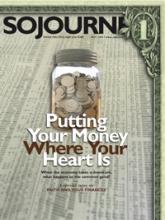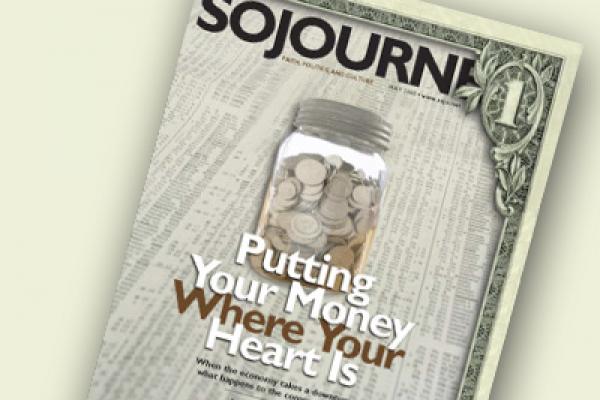Why does money have such control over us? Before I read French theologian and social critic Jacques Ellul’s Money and Power, I thought money had little or no influence on me. I had grown up with just enough to have all I needed without getting spoiled by superfluous luxuries. Since college my life has since been filled with a passion for the hungry. Surely money wasn’t a problem for me?
But it was—and is. Ellul’s writing made it clear that we all make some kind of a god out of money. Perhaps we have too much of it and therefore hoard it. If we have too little of it, we no doubt covet it. Or—and this is the stickler—we have the right amount and are such good stewards of it that we are not generous.
That was my problem—and one of the three might be yours. Money sneaks its way into our thoughts and desires and takes over more of our time and attention (or affection) than it ought to have. There is no such thing as another god beside the one true God (1 Corinthians 8:4), the apostle Paul insists, but he also admits that “in fact there are many gods and many lords” (8:5), and money easily becomes one of those gods in our lives.
So why does money have such control over us that it becomes one of our gods? And how does our faith in Christ overcome money’s grip on us?
Principalities and Powers. Even before the time of Jesus, some philosophers recognized that wealth poses a grave danger to its possessor. Jesus used the Aramaic word “mammon” in warning against a preoccupation with money (Matthew 6:24; Luke 16:11, 13). As a result of those warnings, however, most Christians have thought that money was neutral and became a problem only if people thought about it inordinately or acted to gain it immorally.
Read the Full Article

